
The Kingdom was one of twenty countries that met in London after the end of World War II to establish peace in the world.
The Kingdom appointed its first permanent representative to UNESCO, His Excellency Dr. Hamad bin Abdullah Al-Khuwaiter.
The Kingdom made a significant contribution to the Organization’s budget when the United States withdrew from UNESCO.
The Kingdom submits the oldest Islamic inscription (Kufic), mentioning the date of the death of the second Caliph of Islam, for its inscription in UNESCO’s Memory of the World Register.
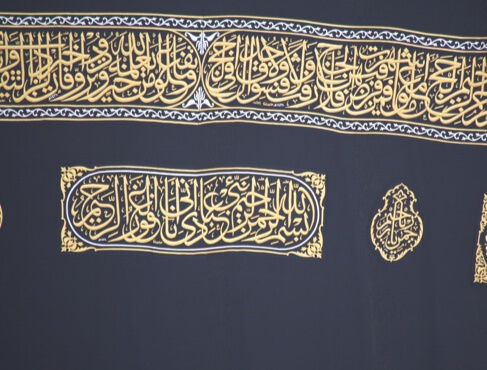
Establishment of the program of HRH Prince Sultan bin Abdulaziz, to support the Arabic language, which contributed to its preservation in UNESCO as a major language.
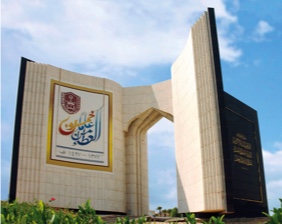
Establishment of the first Saudi research chair in UNESCO in cooperation with the King Saud University.
The Kingdom was elected as a member of the Executive Council, increasing its international presence in the Organization as a key player in decision-making.
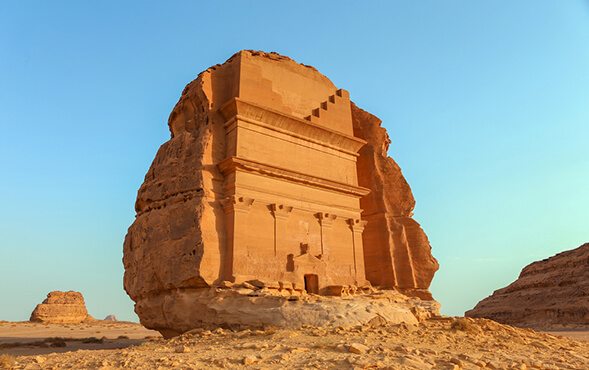
The Kingdom’s first archaeological site was listed on the UNESCO list: Hegra.
The first Saudi poetry evening was held in UNESCO for the poet Ghazi al-Gosaibi, which attracts large Arab and French audiences.
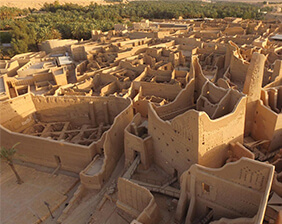
The Kingdom recorded its second archeological site on the UNESCO World Heritage List, which is the At-Turaif District in the historic city of ad-Dir’iyah.
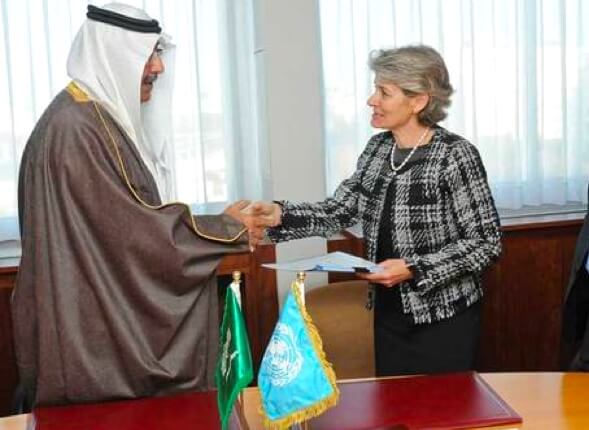
HRH Prince Faisal bin Abdullah, Saudi Minister of Education, signed an agreement to establish the Abdullah bin Abdulaziz International Program for Culture of Dialogue and Peace at UNESCO with the Director General of the Organization, Ms. Irina Bokova.
The Custodian of the Two Holy Mosques King Abdullah bin Abdulaziz International Award for Translation was held at UNESCO headquarters in Paris.
The Organization voted on the membership of Palestine as a Member State of UNESCO and the Kingdom played a major role in mobilizing support for the membership of the State of Palestine.
The Kingdom made a generous contribution when the United States of America refrained from paying its share of the regular contribution of US $ 20 million, which had a positive impact on the continuation of projects that almost ceased in the countries most in need of support.
The Kingdom was elected to the Executive Council for the second time in a row as well as to the post of Vice President of the Executive Council for the Arab Group.
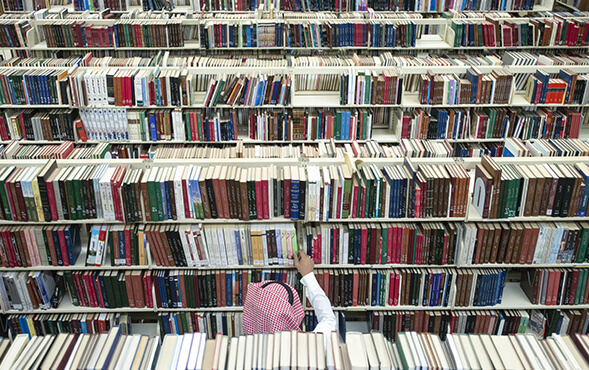
Establishment of the Regional Center for Quality and Excellence in Education in the Arab Region under the auspices of UNESCO in order to provide the “right to education for all” and its quality and its outputs as one of the most important pillars of sustainable development.
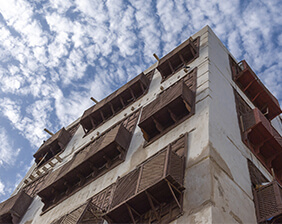
The Kingdom registered its third archaeological site on UNESCO’s list: historic Jeddah.
Saudi Arabia signed a memorandum of understanding between the King Abdulaziz Center for National Dialogue and UNESCO to promote the value of dialogue between peoples and religions.
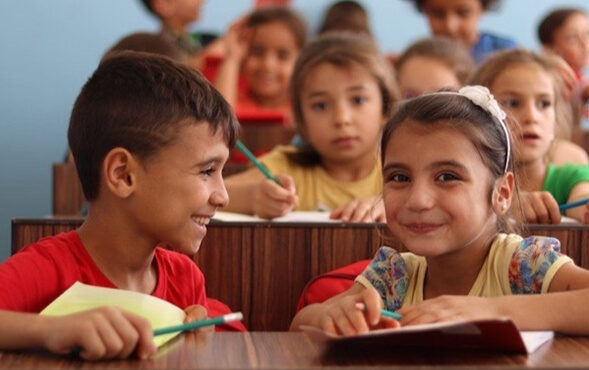
The Kingdom contributed to the development of the Global Agenda for Education 2030 and works with international committees to prepare the fourth goal of sustainable and education-based development through the establishment of regional and international programs and workshops.
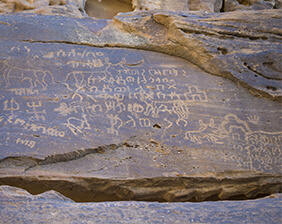
The Kingdom registered its fourth archeological site on UNESCO’s World Heritage List: rock art in the Hail region.
MiSK Foundation provided generous support to the organization to establish the Ninth UNESCO Youth Forum.
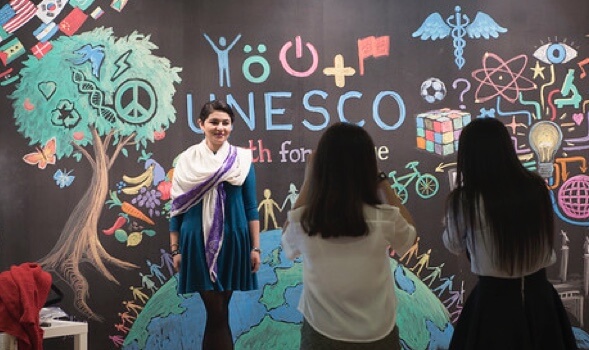
Signing of a memorandum of cooperation between MiSK Foundation and UNESCO to empower youth around the world.
Riyadh hosted the NGO Forum in partnership with MiSK Foundation to empower the world’s youth to enable positive social impact.
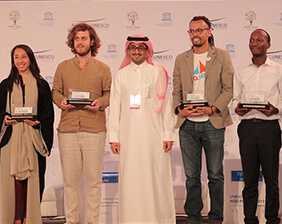
MiSK Foundation launched its International NGO Award in cooperation with UNESCO.
MiSK Foundation sponsored the UNESCO NGO Forum in Moscow, Russia.
The Kingdom registered its fifth archaeological site on the UNESCO list, the Al-Ahsa Oasis.
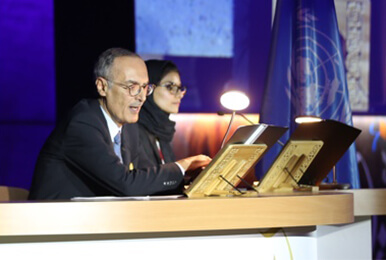
The second Saudi poetry evening was held in UNESCO for the poet HRH Prince Badr bin Abdul Mohsen, attracting large Arab and French audiences.
Signing of a memorandum of cooperation between the Ministry of Culture of Saudi Arabia and UNESCO in the presence of HRH Prince Badr Al Farhan, Minister of Culture and UNESCO Director-General, Ms. Audrey Azoulay.

A Letter of Intent signed on July 12 between Saudi Arabia and UNESCO committed US$ 25 million to the preservation of World Heritage sites, well as the promotion of creative economies.
At the 40th session of the UNESCO General Conference, Saudi Arabia is elected as member of the organization’s Executive Board.
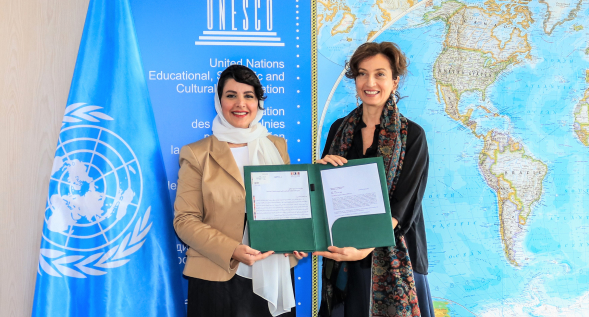
HH Princess Haifa Al Mogrin officially appointed as Permanent Delegate of Saudi Arabia to UNESCO in January.
Saudi Arabia hosts the region’s first G20 Leaders’ Summit in November, also holding the first-ever Culture Ministers’ Meeting. The move was adopted by UNESCO (item 45 at the 210th Executive Board) convening Culture Ministers at a more global scale.
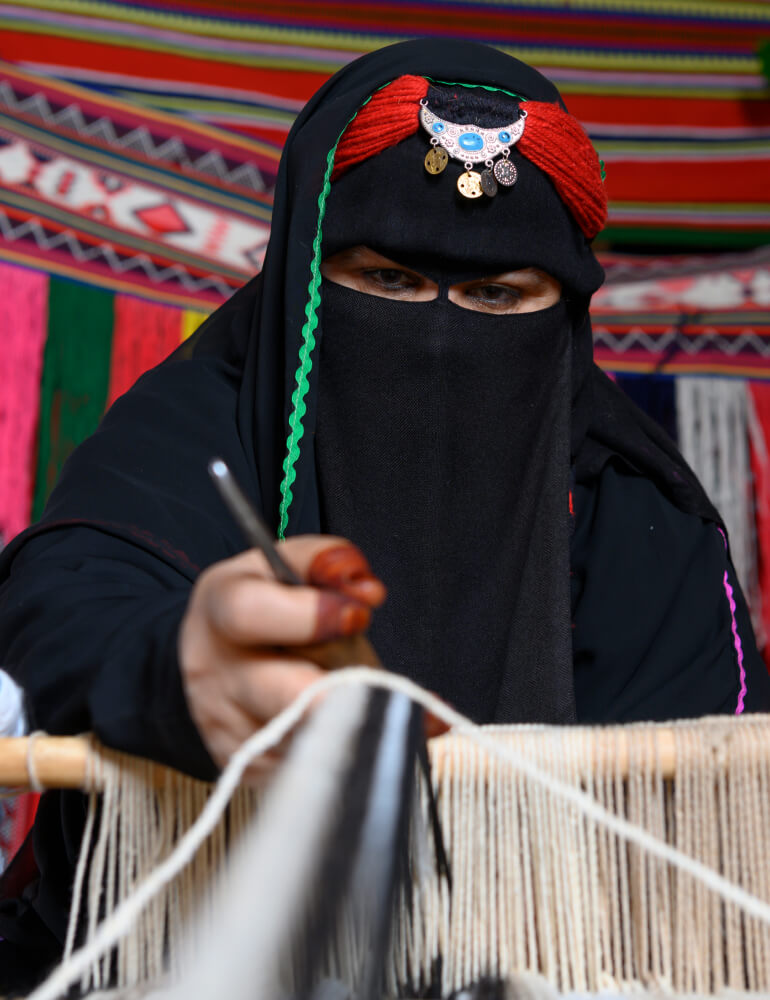
December: The historic art of wool weaving by Bedouin women, Al Sadu, is registered as UNESCO Intangible Cultural Heritage.

